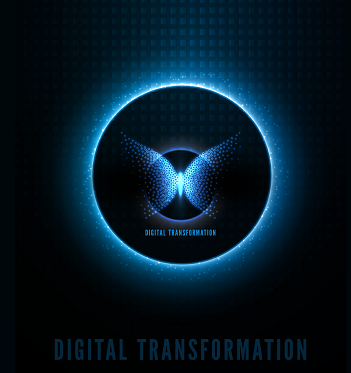Digital Transformation – Expertise to Lead Digitization Initiatives
This is the third column we present by Roshini Kumar on Digital Transformation of Education

By Roshini Kumar
“… the single most important application of information technology is to improve education.”
Bill Gates
The process of learning is not confined to the time spent in a classroom, with homework or on field trips. Learning involves many facets of activity and information flow that form a learning ecosystem. Today’s learning faces many barriers, including social, economic and technology constraints. Yet technology can effectively address these challenges.
In order for technology to improve education, schools must consider the total environment and fully understand the learning ecosystem. Barriers present in the ecosystem must be illuminated and appropriate technology-based solutions must be applied to overcome those barriers and thereby assist educational organizations in achieving their goals. Initiatives in global information technology standards, provide a broad range of capabilities for improving the learning ecosystem.
Schools today require flexible and cost-effective growth, including the use of existing technology and the ability to adapt to change. Therefore, the learning ecosystem must be agile, capable of changing and growing as new innovations occur in teaching, learning, technology, and as the needs of the ecosystem evolve and mature. Envision the possibilities of such an ecosystem, a community of learning for teachers, parents, students, and administrators in which:
- Each has access to personalized learning on a range of devices—anywhere, anytime—individualizing their learning capability and accelerating the learning cycle.
- Each is empowered to harness new technologies and learning applications, eliminating time-sapping struggles with the mechanics of learning.
- Learning is fully integrated with learners’ individual lifestyles and preferred learning styles—seamlessly adapting to their personal needs and abilities.
- A newfound comfort level with learning cultivates deeper perspectives and fresh viewpoints, igniting learners to explore the intricacies of learning itself and how it applies to their world.
- A limitless learning environment levels the playing field and knows no economic, ethnic, political, or social boundaries.
Transformist – School Management
Management needs an environment in which student information is seamlessly integrated between management systems within the school, across schools, and with government agencies. They must be able to track and improve student and school progress, and be informed about potential problems and opportunities so they can take immediate action. Management need to clearly communicate with parents, teachers, and the community. They must control costs, yet remain flexible and adaptable to change. Management should easily access financial records and create their own customized reports, enabling them to make decisions informed by accurate and reliable data. School related information should be maintained in real time. Management should be able to assess which students are progressing or falling behind, and take appropriate action, such as ensuring that a teacher is participating in appropriate professional development or that another is rewarded for innovative work.
Change Makers – Principals
There are a number of challenges that principals face in the current learning ecosystem. The following are just a few of the more prominent factors that affect their ability to manage the school:
Data: Principals lack the timely and accurate data needed to take action. They know certain students are falling behind, but cannot pinpoint possible causes. Principals also lack the tools for analyzing raw data. Many principals use old or out-of-date information to make important decisions.
Funding: Technology in schools is often grossly under-funded, thereby putting additional pressure on principals to develop innovative financing strategies. Funding not provided on time makes it difficult for principals to put into place long-term technology plans.
School principal’s challenges could be addressed through integration of technology. Using technology principals can manage their time, Streamline administration, employ best practices, stay informed and communicate with stakeholders.
To be the real Change Maker, principals should correlate and direct school-related investments to improve technology to achieve goals.
Empowered Educators – Teachers
Teachers are on the “front lines” of education and one of the most critical factors to student success. They are the designers of learning activities, the providers of feedback and the intermediaries that understand why a particular student may be thriving or struggling. In today’s knowledge economy, teachers are required to be accountable for more information than they have time to absorb. Information systems must help them assimilate knowledge in a time-saving, not time-consuming, method.
In the learning ecosystem, teachers can draw on a multitude of rich tools and resources including other teachers or mentors. They will benefit from the cumulative knowledge and experience of their peers. They will be able to draw on a rich collection of digital learning resources, each evaluated and ranked by their peers, and accompanied by detailed documentation on how they were used effectively by other teachers. Teachers will be able to use automatically graded assessments to ensure that their students receive timely feedback, and to track how each individual student is progressing. Administrative tasks will be automated to save their valuable time.
Teachers to become Empowered Educators should be trained and certified on technology enabled teaching tools.
Adroit Mentors – Skillful Digital Educator
Teacher skills and their ability to use technology to support best practices around learning are essential for creating successful learning environments today. Hence, professional development must be ongoing and embedded into their daily activities. This learning ecosystem provides professional development that’s personalized, convenient, and self-directed so teachers can fit it into their busy lives, when they need it. Their professional development learning will be immediately applicable in the classroom, as well.
In an effective and comprehensive learning ecosystem, Adroit Mentos can manage their time, streamline administrative tasks, plan effective curriculum, meet individual and group learning needs, pursue continuous professional development and communicate with parents, peers, and administrators.
Digital Catalyst – Digital Transformation Coordinators
Digital Transformation coordinator are teachers who are trained on technology and assist the school and teachers in Digital Transformation. They implement technology in every facet of school ecosystem and help and train teachers in technology based teaching learning process.
There are a number of challenges that teachers face in the current learning ecosystem. The following are just a few of the more prominent factors that affect their ability to teach and learn:
- Student Information: Information about students ranging from attendance to test scores to discipline reports is often not readily available to teachers. Teachers must know how to navigate disparate information systems to access vital information about an individual student.
- Professional Development: Traditional professional development can often be time-intensive, occurring in a classroom or course setting with a sole focus on how to use technology. Teachers prefer to learn based on a much closer association of how to infuse the use of technology in their classroom. They also desire professional development strategies and learning approaches that cater to their needs for flexible, real-time learning when they need it, individualized learning to fit their unique learning preferences and levels of understanding, and on-going reinforcement and support when they need it.
- Curricular Material: Teachers lack access to a diverse body of curricular materials that allow them to individualize the learning experience. They typically have access to materials that address only one learning style.
- Best Practices: Teachers lack easy access to the best practices of their peers.
- Isolation: Many teachers feel isolated from other teachers. They lack the opportunity to interact with their peers and other educators.
Digital Coordinator is the glue that brings all the stakeholders of education on digital platfrom, and overlook the Digital Transformation in and Educational Institution.
Connected Learner – Student
Students are busy. With demands on their time both in and out of school, they juggle multiple projects and responsibilities. Students need tools that will help them overcome challenges and manage their learning and their lives. They need a learning ecosystem that enables them to make the most efficient use of their time. They also need tools that meet their diverse learning styles and situations. With a more effective learning ecosystem, a day in the life of a student is more easily managed and productive, and their learning experience enhanced.
As the learning ecosystem evolves, the classroom will evolve from a room with desks all arranged facing in the same direction to a place where students can ask why, how, and when in exciting, interactive ways. Students will have access to well-equipped learning environment where they can easily work alone, in groups, or with a mentor. Students can participate in classes led by experts around the globe through powerful learning technologies. Multiple classrooms will be linked together, and classroom instruction and student presentations will be archived for later review or on-demand use. Students will have access to their personalized learning environment from anywhere in the school, and even between schools. They’ll be free to express their ideas in rich and dynamic ways. Students will be able to work together on group projects, and even collaborate with students and experts outside of their school.
In an effective and comprehensive learning ecosystem, students can manage their time, work collaboratively, learn effectively outside of school, access powerful tools for learning and presenting, quickly and conveniently access personal and global learning resources anytime and anyplace and query subject matter experts without limiting time and geography constraints.
Participative Parents
Parents lead hectic, busy lives, and they require easy access to information about their child’s education. This information enables them to take an active role in helping their child succeed in school and in life. Parents also need schools to streamline communication and school-related activities so they have more time to be engaged with their children.
Parents in an effective learning ecosystem can take active roles in preparing their child for success. They will know what is happening in school through easy access to contact information, calendars, presentations and reports from school administrators. They will access up-to-date information on how students in their child’s school are progressing compared to other schools, and how their child is progressing relative to their peers. Parents will be able to see if their child has homework, the child’s actual work on current and previous assignments, and grades and additional detailed teacher feedback.
With access to critical information and more time to be involved, parents can take action outside of school to support their child’s learning. Parent-teacher conferences can be proactive instead of reactive. Parents will be able to find supplemental activities or resources through the online shop to help their child learn in certain critical areas.
In an effective and comprehensive learning ecosystem, parents can manage their time, access school-related information, actively participate in education, track their child’s progress and be connected and informed
Expertise to Lead Digitization Initiatives
With a clear vision, schools can integrate technology available today to start becoming dynamic centers of learning that combine the best of traditional education with unique approaches and innovative teaching and learning tools. An effective and comprehensive learning ecosystem delivers tools for learning, focusing on the role of technology as an enabler rather than on the technology itself. As teaching is refocused to learning, this ecosystem must be in place to facilitate individuality in place of traditional educational processes. This learning ecosystem is flexible, adapting to new innovations in teaching, learning, and technology. Envision the possibilities of such an ecosystem, a community of learning for teachers, parents, students, and administrators.
While planning for Digital Transformation be mindful all stakeholders of education and their digital needs. If right choices are not made Digital Transformation will go terribly wrong.
 Write to me on your concern while planning for Digital Transformation – Expertise to Lead Digitization Initiatives. I will get expert opinions to address your concerns.
Write to me on your concern while planning for Digital Transformation – Expertise to Lead Digitization Initiatives. I will get expert opinions to address your concerns.
You can read the first column here
You can read the second column here